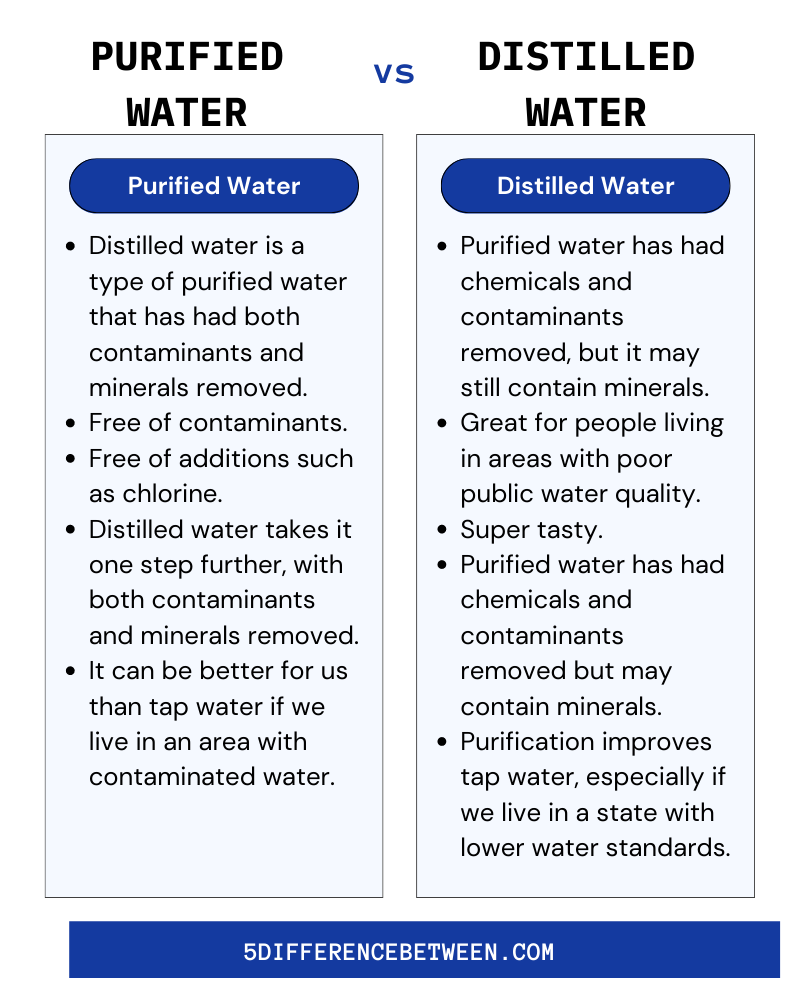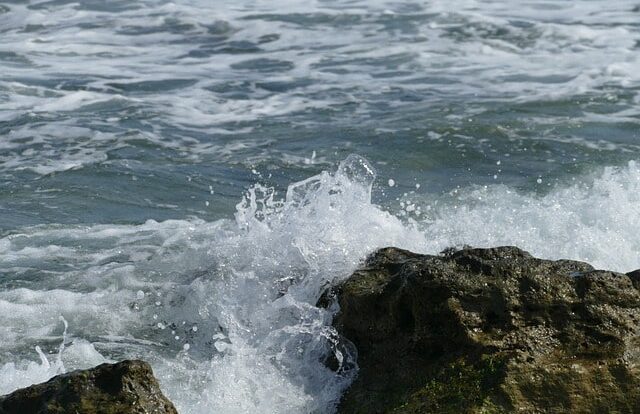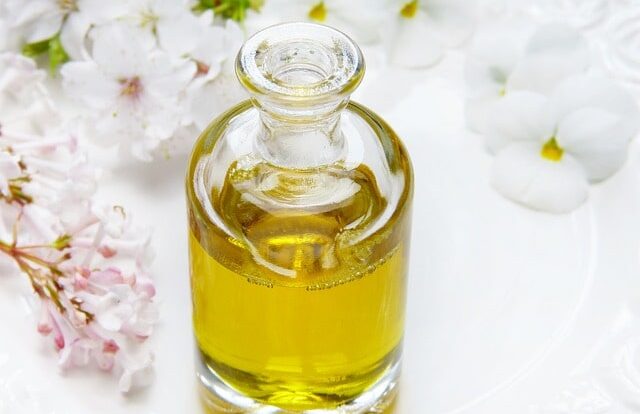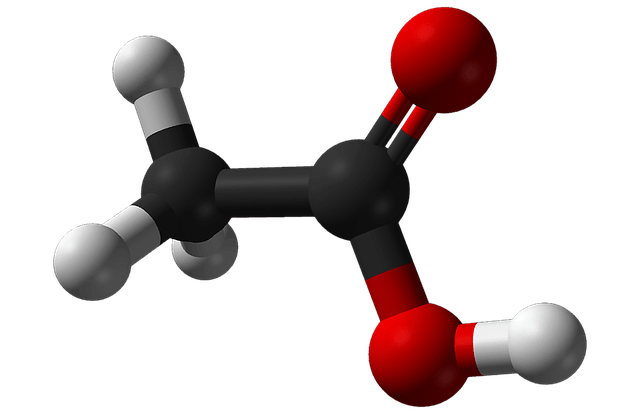Water is an essential part of life, and understanding the differences between two of the most common types of water: distilled water and purified water is critical. Filtration produces both distilled water and purified water, but the two types of water are quite different in composition and application. This article will go over the five main differences between distilled and purified water.
Distilled Water and It Features
To understand the difference between distilled and purified water it is essential to know what they are and their features.
Distilled Water Vs Purified Water: Distilled water is a type of purified water that has had both contaminants and minerals removed. It is one of the purest forms of water available and is commonly used for drinking, cooking, and medical purposes. Distillation is a process that removes contaminants from water by evaporating it and then condensing the vapor. This process leaves behind any minerals and other substances which are not volatile. The result is a clear liquid that is free of most contaminants.
Also Read > Difference Between Yogurt and Curd
It has a number of advantages over other forms of purified water. It is odorless, colorless, and tasteless, making it ideal for drinking. It can also be used in medical procedures, such as dialysis, as it does not contain any minerals or other substances that might interfere with the process. Furthermore, it is less likely to contain harmful bacteria or other microorganisms.
However, distilled water does have some drawbacks. It does not contain any minerals, which can be important for maintaining healthy levels of electrolytes in the body. It also has a lower pH than other types of water, which can make it more acidic.
Additionally, it can be more expensive than other forms of purified water. Overall, distilled water is a safe and pure form of water that is ideal for drinking, cooking, and medical purposes. It is free of most contaminants and has a neutral pH, making it ideal for use in many medical procedures. However, it is important to keep in mind that it does not contain any minerals and can be more expensive than other forms of purified water.
Purified Water and Its Features
Purified water is water that has been treated to remove contaminants such as chlorine, heavy metals, and other impurities from the source water. It is commonly obtained through reverse osmosis, distillation, or filtration. Purified water is used in many different applications, such as medical and laboratory procedures, food and beverage preparation, and industrial processes. It has several advantages, including better taste and odor, increased safety, and improved health. Because it is free of bacteria, viruses, and other potentially harmful contaminants, purified water is safer to drink than many other types of water.
Finally, because it can help reduce calorie intake, purified water is an excellent choice for those attempting to lose weight. Finally, safe drinking water is required for industrial and laboratory processes. It is commonly used in laboratories because the absence of minerals and contaminants aids in the accuracy of results. It can also be used to help reduce scaling and corrosion in industrial processes such as cooling towers, boilers, and steam generators. Purified water has numerous benefits, both for health and for industry. It is a valuable resource for both individuals and businesses, and it should be taken into account when purchasing water for any purpose.
Purified Vs Distilled Water

Is Purified Water the Same as Distilled Water?
Both purified and distilled water are safe and healthy to drink. Purified water is treated to remove contaminants such as chlorine, bacteria, and heavy metals. Distilled water is the purest form of water. Both types of water are available in a variety of locations, including grocery stores and convenience stores. Finally, the choice of which type of water to drink is a personal one that is influenced by personal preferences. Both types of water are contaminant-free and can provide hydration as well as other health benefits.







Out of my examination, shopping for electronic products online may be easily expensive, nevertheless there are some tricks and tips that you can use to help you get the best bargains. There are usually ways to find discount promotions that could help make one to possess the best electronics products at the smallest prices. Thanks for your blog post.